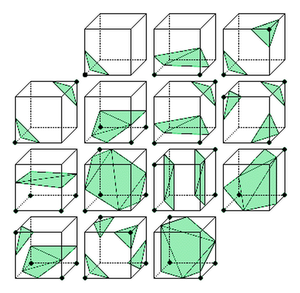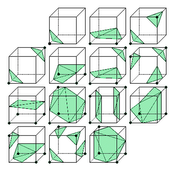Information
- Publication Type: Master Thesis
- Workgroup(s)/Project(s):
- Date: November 2008
- TU Wien Library:
- Diploma Examination: 4. November 2008
- First Supervisor:
Abstract
This thesis introduces visibility histograms as a method for analyzing volumetric datasets. These histograms show how much the data points within a 3D dataset that have the same scalar value influence the image which is created by rendering the dataset with a particular transfer function and from a particular viewing direction. These histograms can be used to gain insights into the internal structure of volumetric datasets, in particular information about occlusions. Furthermore, the possibility of automatically calculating transfer functions which generate a particular visibility histogram when applied to a dataset from a particular viewing direction is explored. Two methods which can be used to calculate a matching transfer function for a visibility histogram are explained, one of which is based on a genetic algorithm approach, while the other is an heuristic.Additional Files and Images
Weblinks
No further information available.BibTeX
@mastersthesis{emsenhuber-2008-vhd,
title = "Visibility Histograms in Direct Volume Rendering",
author = "Gerlinde Emsenhuber",
year = "2008",
abstract = "This thesis introduces visibility histograms as a method for
analyzing volumetric datasets. These histograms show how
much the data points within a 3D dataset that have the same
scalar value influence the image which is created by
rendering the dataset with a particular transfer function
and from a particular viewing direction. These histograms
can be used to gain insights into the internal structure of
volumetric datasets, in particular information about
occlusions. Furthermore, the possibility of automatically
calculating transfer functions which generate a particular
visibility histogram when applied to a dataset from a
particular viewing direction is explored. Two methods which
can be used to calculate a matching transfer function for a
visibility histogram are explained, one of which is based on
a genetic algorithm approach, while the other is an
heuristic.",
month = nov,
address = "Favoritenstrasse 9-11/E193-02, A-1040 Vienna, Austria",
school = "Institute of Computer Graphics and Algorithms, Vienna
University of Technology ",
URL = "https://www.cg.tuwien.ac.at/research/publications/2008/emsenhuber-2008-vhd/",
}

 image
image paper
paper

